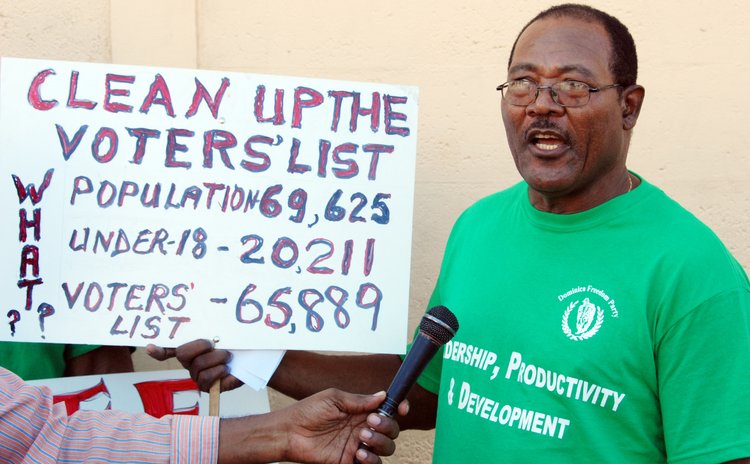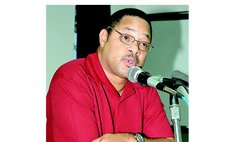Electoral Reform, or Electoral Modernisation-is this Dominica's Impossible Dream?

For over two decades, Dominicans have craved electoral reform to usher in what we hope will be "a government for the people, by the people and of the people".
However, that yearning has become as irritating as trying to reach an unreachable star, as far away and as tenuous as Don Quixote's images in "The Impossible Dream (The Quest)".
So, as Dominica's opposition forces attempt to push the authorities to implement fundamental electoral reform with a rally in Roseau on 31 May 2023, we reflect on the country's dismal failure to make any meaningful progress on this significant problem that will not go away. Yet, we continue to waste time, energy and resources on electoral reform that takes us backwards instead of forward.
We ask rhetorically why electoral reform in Dominica has become so complicated yet easy in other islands such as St. Kitts and Nevis.
There are two simple answers to that question: the Dominica Labour Party, and the alleged independent Dominica Electoral Commission.
Let us take the last one first.
Let us tell it like it is: when we speak about electoral reform, the Electoral Commission has been a disaster for decades. Instead of performing its functions as the Constitution intended, the Commission has become a political tool, a pawn of politicians.
Of course, based on the provisions of the Constitution, the key to the independence of the Commission is appointing the Chairman, whom the President of the Commonwealth of Dominica appoints in his deliberate judgement. Comparatively, the President appoints the other four members on the advice of the party forming the government (two members) and the leader of the opposition (two members).
However, over the past two decades, who has the President appointed in his so-called "deliberate judgement"? Ask yourself this question: can any person claim to be independent when they benefit from the government's unique and exclusive privileges?
Therefore, many Dominicans have concluded that the Commission is and cannot be independent. Herein lies the popular perception of a tainted election process.
"Electoral commission independence – the extent to which electoral commissions can operate independently of political pressures and external interference – is an important driver of public perceptions of electoral integrity," states the authors of paper: "Understanding and Assessing Electoral Commission Independence: a New Framework".
Furthermore, there are many instances of the need for more independence of the Commission to regulate Dominica's elections. A current example is the Sir Dennis Byron one-person commission.
Observe that instead of the Electoral Commission of Dominica, Prime Minister Skerrit hired Sir Byron, designed his terms of reference, informed the public of his decision to take Sir Byron's recommendations straight to a Parliament that he, in essence, controls with a 19-2 majority.
As we stated earlier, the Commission appears to us, the people, to be a fast-asleep-backseat-and-sedated passenger on a bus being driven by the Dominica Labour Party (DLP) towards an elusive, never-ending electoral reform or modernisation journey—that elusive impossible dream.
The Commission must take the driver's seat for that dream to become a reality. Putting the Commission back in control of our election process is not rocket science. It has been done before in other islands of the Region.
"The reason and rationale for the creation of the Electoral Advisory Committee (of Jamaica) in 1979 were to remove the electoral machinery from the almost complete control of the political party in government," writes Professor Errol Miller in his blog. "Put bluntly, the political party in power (should) not control the electoral machinery to perpetuate itself in government".
Apart from the ineffectiveness of the Dominica Electoral Commission, the other problem that has led to the protracted electoral reform process is the DLP.
Let us state it bluntly: the DLP believes that the electoral process is not broken, so why should they fix it? Additionally, the DLP has concluded that electoral reform in the Dominican context is a United Workers Party (UWP) invention to work itself back into power.
Additionally, although Prime Minister Skerrit said at his last press conference that he is frustrated by the lack of progress in the electoral reform process, we must assess his words with his action, especially in 2019 and 2022 when he called snap elections.
In 2019, just before the general election, the government of Prime Minister Skerrit, through the Attorney General, said the Special Joint Mission's recommendations to clean the voters' list by house-to-house verification and issue voters ID cards were not affordable.
Again, in 2022, Prime Minister Skerrit surprised almost everybody by dissolving parliament on the cusp of the release of Sir Dennis Byron's report on electoral reform.
The mayhem and confusion that may infect the capital's streets on 31 May 2023 could have been avoided. But, unfortunately, meaningful electoral reform will remain Dominica's impossible dream.




